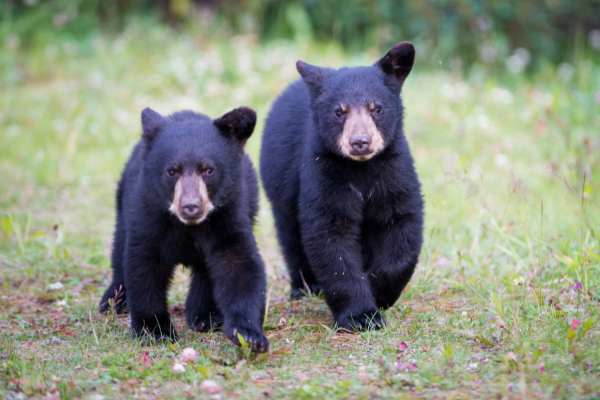Connecticut’s black bears have a target on their back. State legislators are poised to approve a recreational hunt under the guise of public safety even though studies show that killing bears will do nothing to prevent human-bear interactions.
The truth is success in preventing bears from losing their wariness of people depends on changing human behavior. Human-bear interactions decline when food attractants such as birdfeeders and trash are removed. A cruel, random, recreational bear hunt will never stop bears from being curious, opportunistic feeders.
The Environment Committee is holding a hearing this Friday, March 10th at 11:30 a.m. on Senate Bill 1148, which would establish a lottery to hunt and kill black bears in CT. Use this link and follow the instructions to submit your comments to the Environment Committee in opposition of SB1148.
This same issue has been raised at the legislature over many years, with hunters seeking open season and unrestricted ability to hunt black bears in the deep woods where they naturally live.
Non-lethal solutions are effective in mitigating human-bear interactions. Our state needs to invest in common-sense solutions and ensure we are properly protecting this important wild species.
Black bears are crucial to the forest ecosystem. They help regulate insect populations, disperse seeds, open canopies and amend soils. They are slow to reproduce, and their numbers are not large enough to survive a sustained hunt. Studies have shown time and again that it is food availability, not bear population numbers, that cause most negative human-bear interactions.

